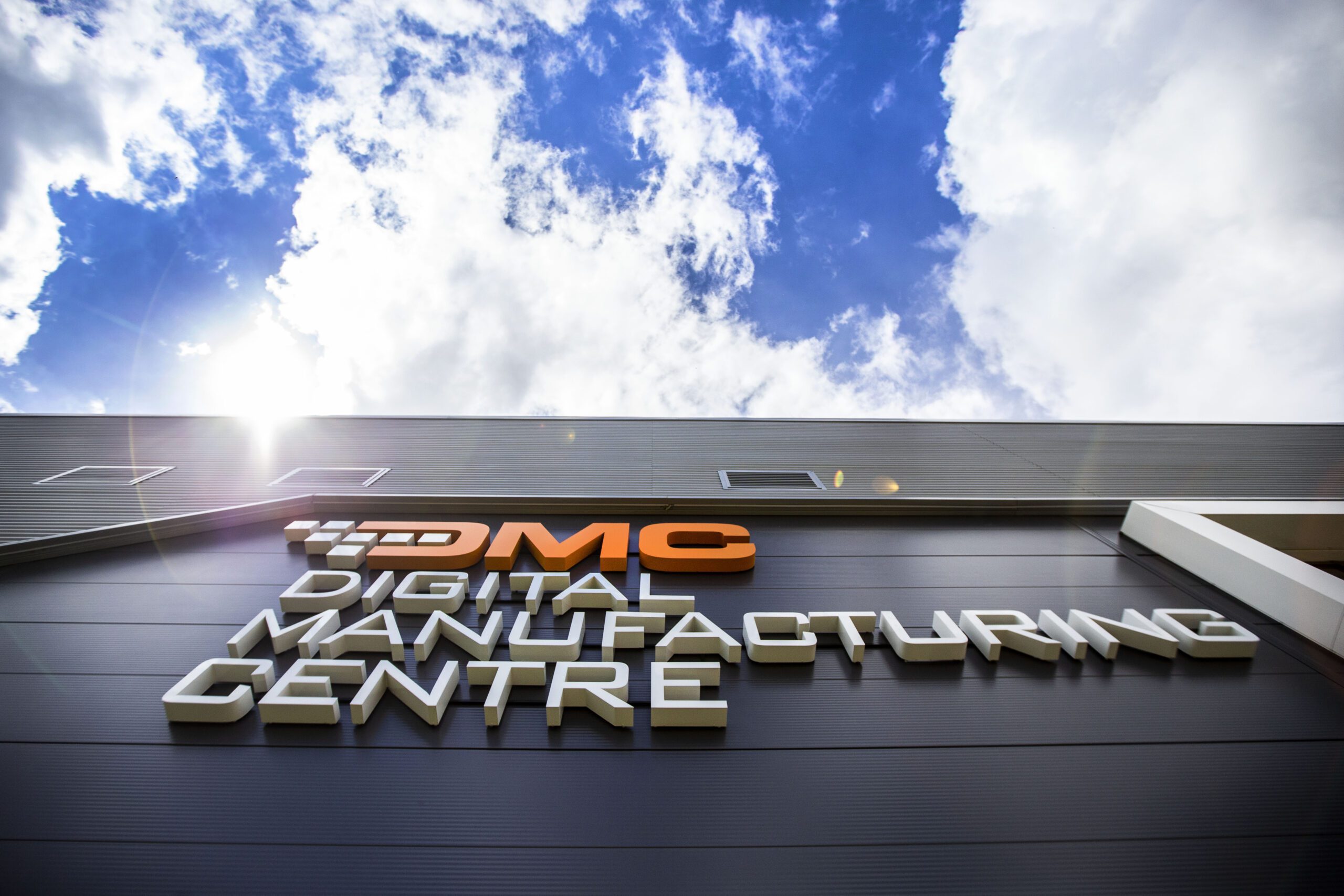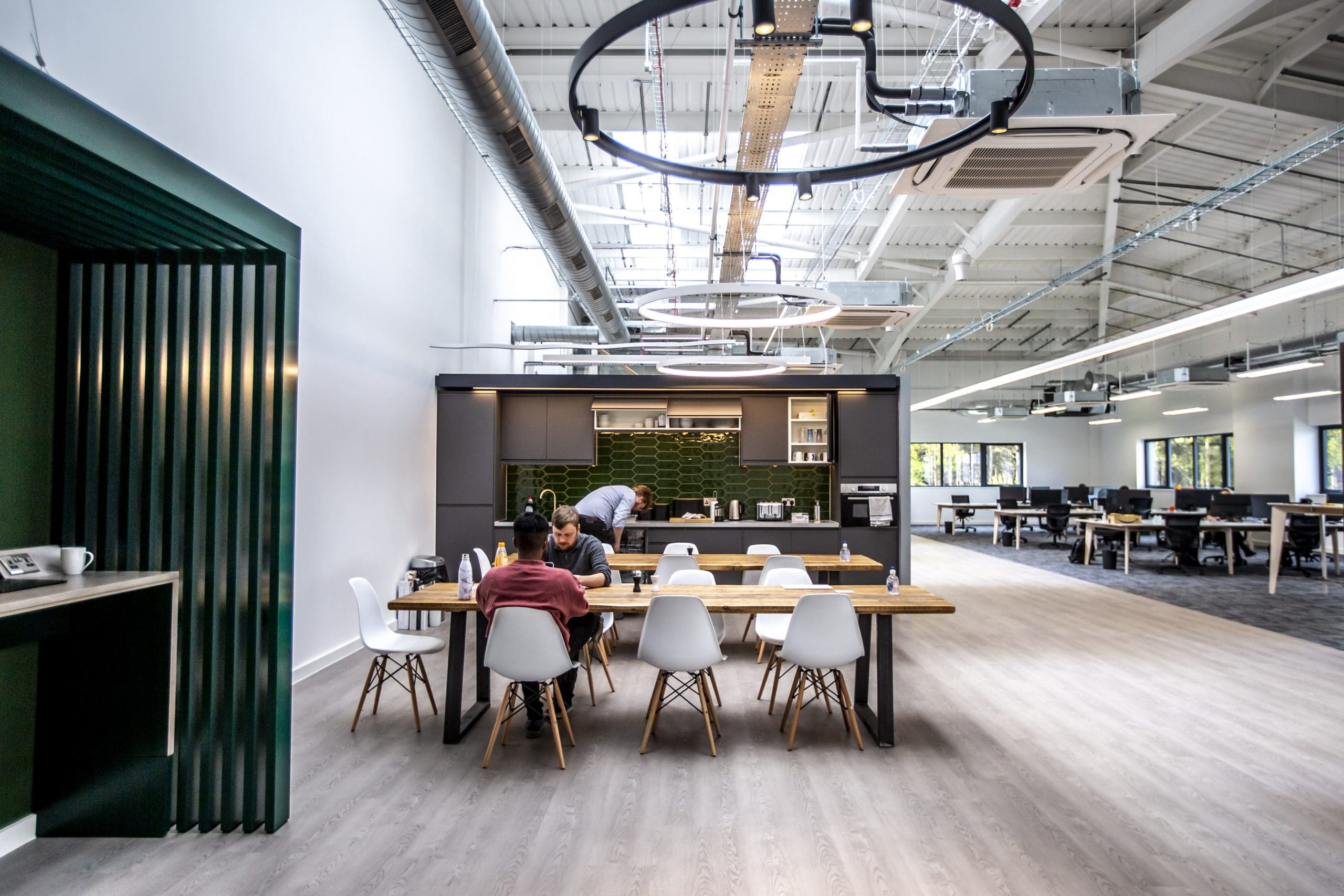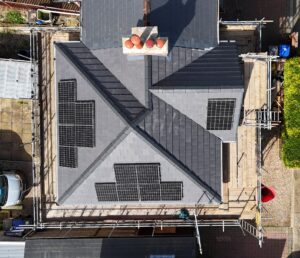Within the world of manufacturing, the themes of digitalisation, Industry 4.0, connectivity, autonomy and smart production are all too commonplace. But what do these things actually look like? What is the significance? How will it shape the future of advanced industries?
From their new, 2,000 square metre facility in Silverstone Park, a team of talented engineers have established a pioneering business to answer these questions. Inspired by the rapid development practices of motorsport and equipped to meet industry-leading quality standards, the Digital Manufacturing Centre (DMC) is unlike anything else in the UK – and maybe even the world.
While you have probably already heard about 3D printing and additive manufacturing (AM), you are almost certainly imagining the tiny machines used by enthusiasts at home. There are, however, additive manufacturing machines capable of producing parts for spacecraft from state-of-the-art alloys, components for some of the world’s fastest supercars and even intricate internal medical devices.

“What was once the province of hobbyists has now matured into a fully-fledged and viable method of volume production with incredible precision and unprecedented capabilities,” said Kieron Salter, CEO of the DMC. “Back in 2017, we saw the true potential of AM and identified that the UK urgently required a national advanced manufacturing supply chain to support industries like space, aerospace, defence, motorsport, automotive, medical, marine, renewable energy, industrial and oil and gas. As a result, we set out to build an industry-defining commercial AM production facility.”
The advantages and attraction of AM are numerous, but it has conventionally been viewed as prohibitively expensive. The reality is that AM and its associated processes are less wasteful, more energy-efficient, have faster lead times, can be used to manufacture on demand and often eliminate the need for tooling – all of which offset much of the perceived additional costs.
Not only that, but the way parts are made using AM also allows for very complex part geometries, allowing a number of conventional components to be consolidated into a single AM part to reduce overall complexity and minimise assembly difficulties. Additionally, AM can reduce the amount of material to only what is required, making the resulting items lighter.

Kieron points out that while 3D printing companies exist – so-called ‘print bureaus’ – they are not necessarily effective production partners for advanced industries, often lacking the engineering capabilities or capacity to consider the final application and fully harness the possibilities of AM. The idea behind the DMC’s engineering-led approach is that it not only maximises the utility and advantages of the process, but that it also makes AM far more accessible and practical for these industries.
“Our application engineers work alongside customers to understand exactly what they need, leveraging their knowledge of AM production to produce the best possible part. We are bringing together the best AM technologies and a highly-skilled, multi-disciplinary team to solve industry and customer challenges, enabling the future of UK innovation and production.”
The DMC is a privately-owned enterprise with a focus on being the leading commercial AM production provider in the UK and one of the most advanced in the world. It has been brought to life with funding from SEMLEP’s Local Growth Fund and the support of numerous industry-leading technology partners. This collaborative approach is already providing the business with unique advantages over the established 3D printing industry, with many new technologies and materials arriving at the DMC long before reaching other commercial sites.
For technology partners, like Renishaw and Beckoff, the DMC has become a reference site that highlights the capabilities and benefits of their products and services to other potential customers.
“The motivation behind the DMC was to provide the UK and international markets with an entirely new capability, to lead by example,” said Kieron Salter. “It also comes at a critical time for the UK’s post-Brexit, post-COVID supply chain, highlighting the way forward by providing a realised example of Industry 4.0 and the UK government’s Industrial Strategy.”

With the groundwork of connectivity now laid, the DMC team has begun to investigate and implement machine learning and AI – harnessing algorithms to refine and perfect manufacturing processes across the many interconnected systems within the facility. Not only will this improve efficiency, but it will also result in unparalleled part quality.
Following an extended period of geopolitical instability, and the shadow of a global pandemic, it is reassuring to see that there are still visionaries and innovators willing to embrace new technologies and deliver the future we are all still hoping for. As the DMC paves the way for the future of UK manufacturing, this sort of bold approach could be precisely what the UK and its businesses need to bounce back and establish their place in the international market once again.
For more information about the DMC, visit www.digitalmanufacturingcentre.com or contact
Jim Hadfield at Prova on 01926 776900, or email dmc@provapr.co.uk













